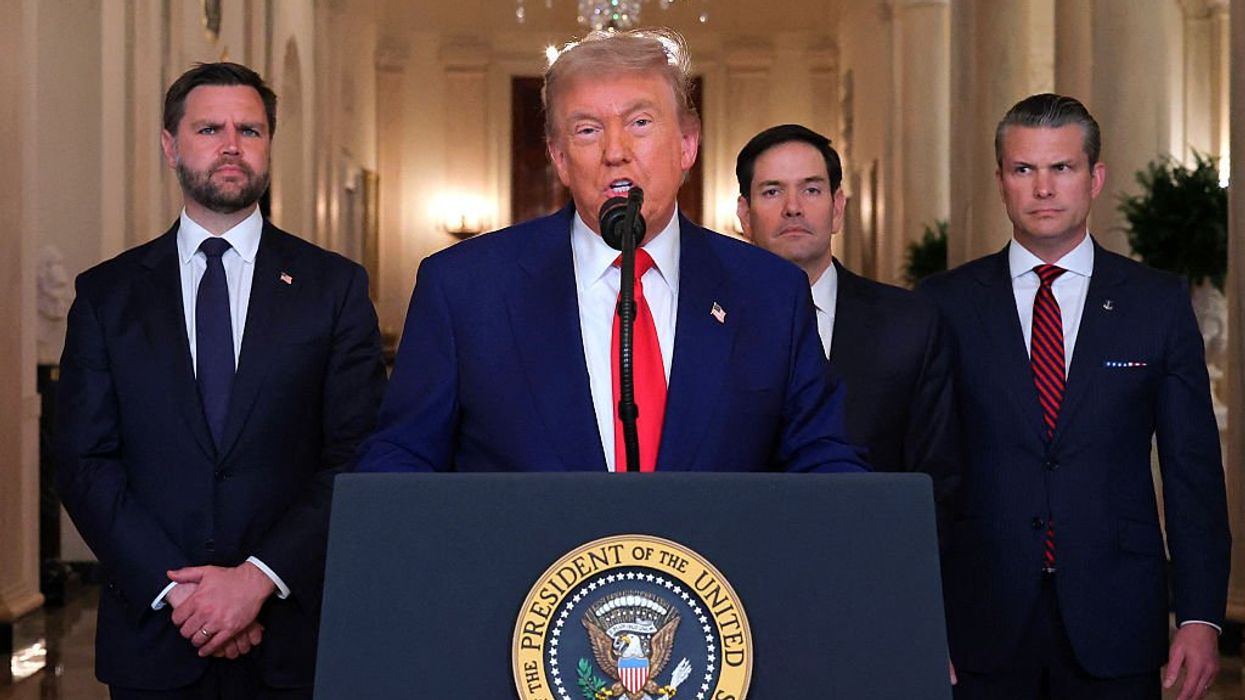
© 2025 Blaze Media LLC. All rights reserved.
"...we’re going to have to cut cost and cut programs"
It is a well-known fact that California has the largest state deficit in American history. Furthermore, at 11.9 percent, California also has the dismal distinction of having the nation’s second-highest unemployment rate.
And that's not all. There are other points that some argue contribute to California's weak economy*:
- Top Marginal Personal Income Tax Rate: 10.55 percent
- Top Marginal Corporate Income Tax Rate: 8.84 percent
- Personal Income Tax Progressivity (change in tax liability per $1,000 of income): $36.19
- Property Tax Burden (per $1,000 of personal income): $27.18
- Remaining Tax Burden: (per $1,000 of personal income): $16.13
- Debt Service as a Share to Tax Revenue: 8.7 percent
- Public Employees Per 10,000 of Population (full-time equivalent): 502.1
- State Minimum Wage: $8.00
- Average Worker’s Compensation Costs: $2.72
- Right to Work State: No
Obviously, after reviewing the above, California is not in very good shape (economically speaking).
So what is to be done?
Los Angeles Mayor Antonio Villaraigosa, (D-Calif) believes that "red tape" and an "out of whack" tax system have been detrimental to his city's economic success. Therefore, he is proposing to cut frivolous taxes (including one on new car dealers) so that Los Angeles can attract businesses and create jobs.
However, as is the case whenever anyone talks about cutting taxes or state programs, Villaraigosa has been met with opposition.
Recently, during an interview with Neil Cavuto on Fox Business, Villaraigosa had a chance to discuss some of his plans to help spur his city’s (and state’s) economy.
“You’re going after this tax on car dealers,” Cavuto said during the interview, “Obviously you face the same budgetary pressures as many mayors, but you’re addressing them head on and ticking off a lot of people. Does that worry you?”
“No,” Villaraigosa laughed. “I’m operating as if this is the end of the line and I got to make the tough decisions.”
“It might well be,” Cavuto said in reference to the mayor’s actions possibly ending his political career.
The mayor responded that that did not worry him.
“I’m worried about the fact that we have to get our local governments, our state and federal governments, on a more sustainable path," Villaraigosa said. "That means we’re going to have to cut cost and cut programs, we’re going to have to be more efficient. It also means we’re going to have to create more revenues and one way to do it is to cut red tape (which we’re doing), cut some of our taxes which are out of whack (which we’re also doing), but we’re also making investments.”
Watch the interview with Neil Cavtuto:
Villaraigosa went on to talk about the national extension of his 30/30 Initiative known as “America Fast Forward,” a "loan program" that could supposedly "create nearly 1 million jobs, produce $158 billion in economic output and generate $51 billion in worker income."And how is this any different from the Federal stimulus plan? It incentivizes localities such as Los Angeles to put up their own money, says the mayor.
Villaraigosa has also argued that the program will put people to work at "little cost, since 98 percent of the federal dollars would be repaid from local sources."
“It’s critical that we make investments too," the mayor argued. "We gotta’ cut on the one hand, there’s no question about that, but we gotta’ compete with China and Europe and the developing nations of the world who are all investing in high speed rail, investing in their ports—” he said before Cavuto interrupted him to make the point that one needs to have capital before they can invest.
The Mayor simply reiterated that it will be their own money they invest in Los Angeles’ economy.
Final thought: if Californians are really serious about turning their economy around, reducing their state deficit, and spurring job growth, cutting frivolous taxes would seem like an excellent place to start.
However, advocating a program that AFL-CIO President Richard Trumka says “will help revive manufacturing," and that Barbara Boxer (D-Calif) says is "the kind of initiative that I believe the House and Senate can work together on," may not be the best idea.
*Arthur B. Laffer, Stephen Moore, Jonathan Williams, Rich States, Poor States: Alec-Laffer State Economic Competitiveness Index (Washington, D.C.: American Legislative Exchange Council, 2010) 76.
Want to leave a tip?
We answer to you. Help keep our content free of advertisers and big tech censorship by leaving a tip today.
Want to join the conversation?
Already a subscriber?
more stories
Sign up for the Blaze newsletter
By signing up, you agree to our Privacy Policy and Terms of Use, and agree to receive content that may sometimes include advertisements. You may opt out at any time.
Related Content
© 2025 Blaze Media LLC. All rights reserved.
Get the stories that matter most delivered directly to your inbox.
By signing up, you agree to our Privacy Policy and Terms of Use, and agree to receive content that may sometimes include advertisements. You may opt out at any time.





